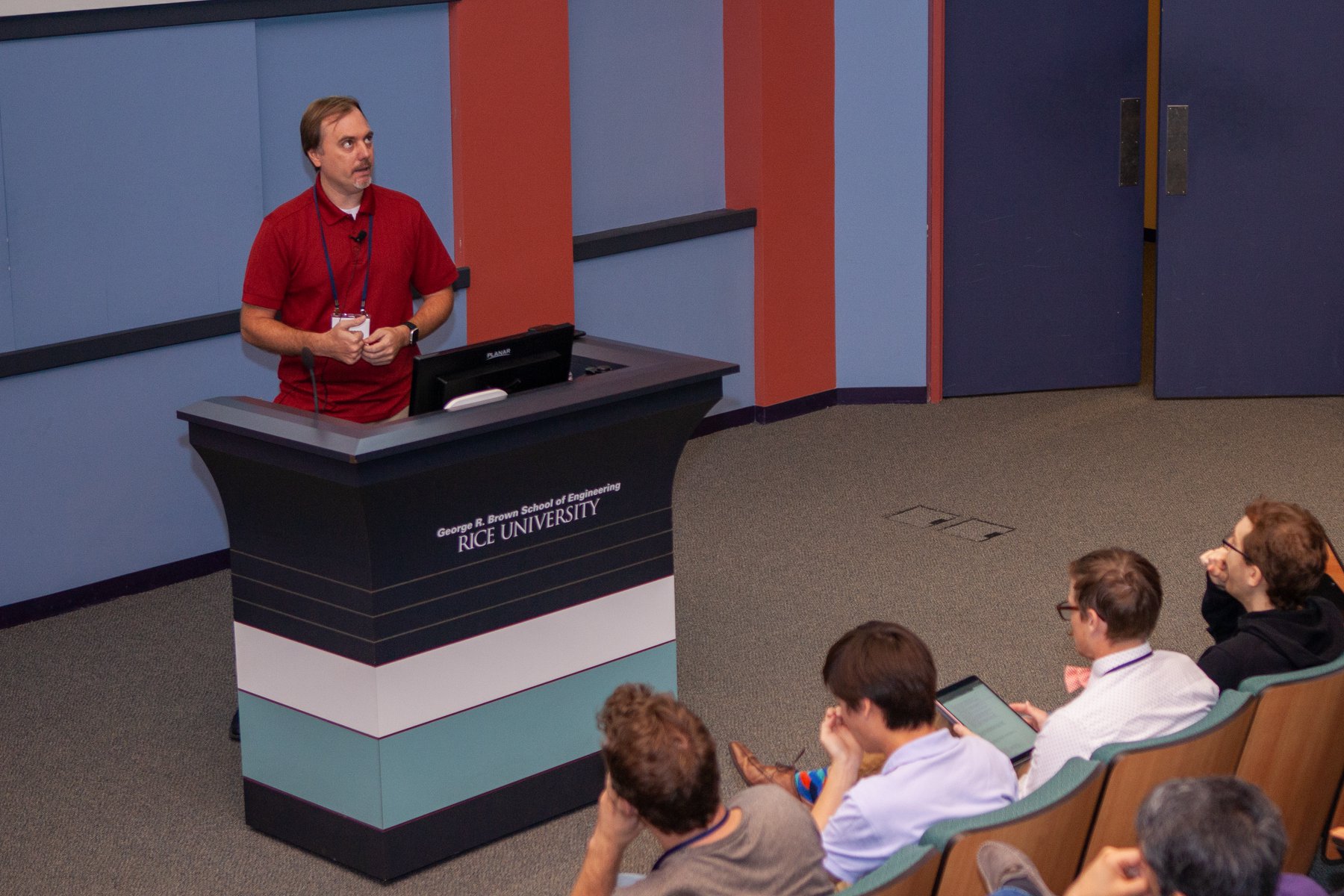Rice Computer Science’s Treangen Lab is part of a multi-institution study aimed at better understanding why some critically ill patients develop multidrug-resistant infections.
The Dynamics of Colonization and Infection by Multidrug-Resistant Pathogens in Immunocompromised and Critically Ill Patients program, also known as DYNAMITE, received an $11 million grant from the National Institute of Allergy and Infectious Diseases (NIAID) to conduct this five-year study.
The research team will seek to explain the microbial, clinical, and antimicrobial resistance factors of three major multidrug-resistant pathogens: Vancomycin-resistant enterococci, Enterobacterales producing extended spectrum β-lactamases/carbapenemases, and Clostridioides difficile. All three pathogens are resistant to antimicrobial treatment such as antibiotics.
Rice’s research team includes the Treangen Lab, led by assistant professor of computer science Todd Treangen, as well as Suzanne Tomlinson, the director of research programs and strategic initiatives for the Gulf Coast Consortia.
“As I'm increasingly dedicated to contributing to translational research projects, I'm thrilled to be involved in this multi-institutional program project grant funded by NIAID,” Treangen said. “The overarching goal of this project is to elucidate the dynamics of colonization and infection by multidrug-resistant pathogens.”
The program also includes researchers from the Center for Antimicrobial Resistance and Microbial Genomics at McGovern Medical School, the Center for Infectious Diseases at UTHealth School of Public Health, MD Anderson, Texas Children's Hospital, Baylor College of Medicine and the University of Houston.
The project will utilize state-of-the-art analysis of the genomes of the pathogens and their potential products—paired with robust microbiome (gut flora) analyses using stool samples, oral swabs, and blood samples.
The research team plans to follow the study participants during hospitalization in intensive care units at Memorial Hermann Hospital-Texas Medical Center, as well as those in the bone marrow transplant unit at MD Anderson, to understand why some patients who have these pathogens colonized within their gut do not develop infections, while others do. Colonization means the pathogen is present within the body, and infection means the pathogen is present and making the patient ill. Individuals who are at greater risk for developing a multidrug-resistant bacterial infection are those with weakened immune systems and those taking antibiotics for other infections.
The human microbiota is the collective whole of all the trillions of pathogens (bacteria, fungi, protozoa, and viruses) that live inside the body. The largest collection is within the gut. One of the microbiota's main functions is helping regulate the immune system, and any change to the microbiota can affect the likelihood of infection from a pathogen.
“My group will contribute to the functional genomics (FUSE) core that will leverage a multi-omics approach to help uncover the complex interplay between the pathogen, the microbiome, and the host in immunocompromised and critically-ill patients.” shared Treangen.
Third-year PhD student Advait Balaji is one of the researchers working with Treangen in his Lab. Balaji explains, “This grant and partnership provide a great opportunity to participate in state-of-the art translational medical research that has the potential to have a significant real-world impact.”

